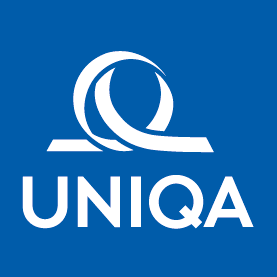Remuneration report
Principles
Principles of profit-sharing for the Management Board
A short-term incentive (STI) is offered in which a one-off payment is made based on the relevant earnings situation if the specified individual objectives for the payment of the incentive have been met. From the 2017 financial year the STI shall be paid out in annual partial payments. A long-term incentive (LTI) is also provided in parallel as a share-based payment arrangement with cash settlement, and this provides for one-off payments after a period of four years in each case based on virtual investments in UNIQA shares each year and the performance of UNIQA shares, the P&C Net Combined Ratio, and the return on risk capital over the period. Maximum limits are agreed. This LTI is subject to an obligation on the members of the Management Board to make an annual investment in UNIQA shares with a holding period of four years in each case. The system complies with Rule 27 of the Austrian Code of Corporate Governance.
Following the Solvency II requirements for remuneration policy for board members, payment of the STI shall be made in two stages from the 2017 financial year. Part will be paid out directly after the determination of earnings, and the remainder will be allocated. Upon a positive sustainability audit for the vesting period, this amount will then be paid out three years later. The STI is thereby designed to ensure an appropriate balance between fixed and variable remuneration elements.
Principles and requirements for the Company pension scheme provided for the Management Board
UNIQA has agreed retirement pensions, occupational disability benefits and surviving dependants’ pensions for the members of the Management Board. The beneficiaries’ actual pension entitlements are a contractual arrangement with Valida Pension AG, which is responsible for managing the pensions. The retirement pension generally becomes due for payment when the beneficiary reaches 65 years of age. The pension entitlement is reduced in the event of an earlier retirement, with the pension eligible for payment once the beneficiary reaches the age of 60 at the earliest. In the case of the occupational disability pension and survivor’s benefits, basic amounts are provided as a minimum pension.
The pension plan at Valida Pension AG is funded by UNIQA through ongoing contributions for the individual members of the Management Board. Compensation payments must be made to Valida Pension AG if members of the Management Board step down before the age of 65 (imputed contribution payment duration to prevent overfunding).
Principles for vested rights and entitlements of the Management Board of the Company in the event of termination of their position
Termination payments have been agreed based on the earlier provisions of the Austrian Salaried Employee Act. These severance payments, which are made if the employment contract of a member of the Management Board is terminated prematurely, comply with the criteria set out in Rule 27a of the Austrian Code of Corporate Governance. The member of the Management Board generally retains his or her pension entitlements if his or her function is terminated, but the entitlements are subject to curtailment rules.
Essential principles of remuneration policy for the companies included in the consolidation (UNIQA Österreich Versicherungen AG, UNIQA International AG and all international insurance subsidiaries)
Bearing in mind the UNIQA business strategy, as well as legal and regulatory requirements, UNIQA’s remuneration policy aims to create a direct connection between the company’s economic goals and board member remuneration. Thus, in addition to the base salary, there is a performance-based, variable remuneration component (STI) which is regularly compared with the external market. This is a bonus payment that depends on the attainment of agreed qualitative and quantitative objectives in the relevant financial year. An essential criterion for determining and formulating the objectives is that they support UNIQA’s Group strategy and are therefore in harmony with the overall strategic orientation. The structure of the total remuneration – the ratio of the basic salary to the variable salary – depends on the respective position. In principle, the variable portion of the total remuneration increases with the size of the area of responsibility.
The sustainability of the business activity and its contribution to sustainable corporate growth is an essential component. This is incentivised in part by delaying the payment of a portion of the STI.
The Solvency II requirements for remuneration policy for board members are met by the above. Furthermore, the Management Boards for UNIQA Österreich Versicherungen AG and UNIQA International AG (insofar as they do not have a claim as an identical board member of UNIQA Insurance Group AG) are included in the long-term incentive programme described above.

